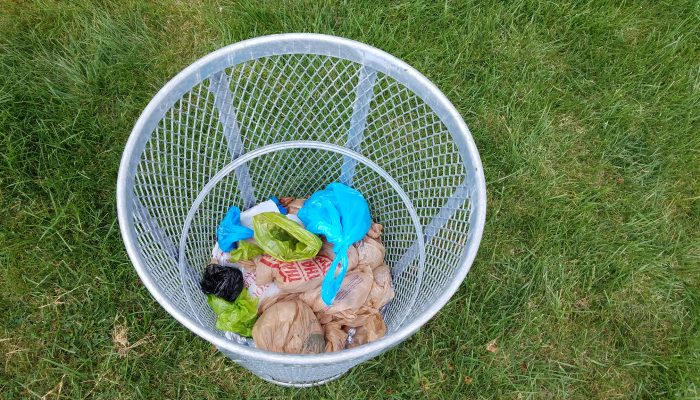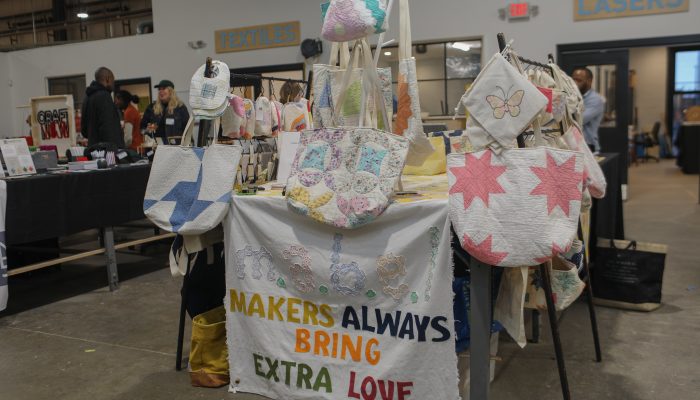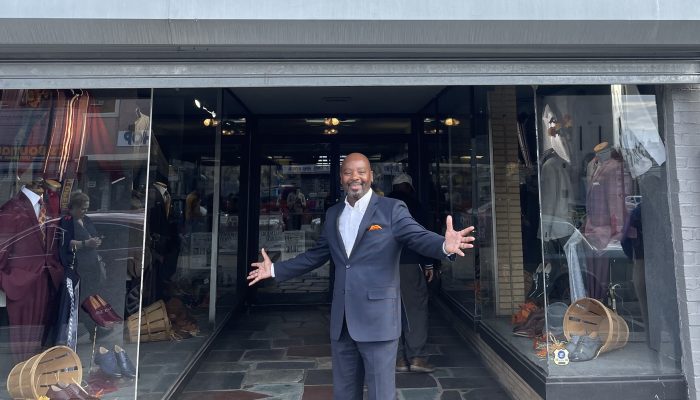It’s official— Philadelphia has banned single-use plastic bags!
As of April 1, the City of Philadelphia will begin to enforce the plastic bag ordinance which prohibits businesses from using single-use plastic bags and non-recycled content paper bags.
The Single-use Plastic Bag Ban was originally passed by City Council in December 2019 and will be implemented beginning July 1, 2021.
To assist businesses through this transition, the City is providing a variety of resources, all of which are available on a new webpage at phila.gov/plastic-bag-ban.
Resources available include signage—in multiple languages—that businesses can download, print, and hang at points of sale as well as a flyer that answers frequently asked questions about the ban.
In addition, beginning in April 2021, the City held three separate virtual business information sessions that are available to watch online.
Though the ban will be implemented beginning July 1, there will be a nine-month awareness, education, and warning period before full enforcement begins in order to provide businesses time to prepare and comply with the law.
Why ban plastic bags?
Philadelphians use almost 1 billion plastic bags each year, which litter our streets, waterways, and commercial corridors. Plastic bags account for over 10,000 hours of lost staff time and pose a danger to workers at recycling facilities because they get caught in the equipment. Banning plastic bags will make our city cleaner, reduce waste and save money.
What is banned?
The legislation prohibits commercial businesses from providing on-site or with a delivery:
- All single-use plastic bags. This includes all those created through a “blown film extrusion” process or bags that are less than 2.25 mils thick. (The blown film extrusion process is the primary way that all plastic bags that use plastic film are created, regardless of the thickness of the plastic. Therefore, this legislation bans ALL bags we commonly refer to as single-use plastic bags, no matter their thickness.)
- Bags made from PLA (polylactic acid) created through a blown film extrusion process.
- Any paper bag that does not contain at least 40 percent recycled content and does not meet the labeling criteria set in the legislation.
What kind of bags will still be allowed?
Retail establishments will still be permitted to provide:
Reusable bags:
- Made of nylon, cotton, cloth, polyester, or another machine washable fabric that are specifically designed and manufactured for multiple reuses.
- Reusable plastic bags that are not created through blown film extrusion, are more than 2.25 mils thick and are specifically designed and manufactured for multiple reuses.
Paper bags that:
- Contain a minimum of 40 percent post-consumer recycled content
- Contain no old-growth fiber
- Display the word “Recyclable” or “Recycled Content” in a highly visible manner and are labeled with the name of the manufacturer and the percentage of post-consumer recycled content of the bag in an easy-to-read font size
Which businesses are affected?
The ban will affect all retail establishments of all sizes in Philadelphia that make bags available for carryout items (such as food, clothing, home goods, etc.) and/or for delivery. These businesses include establishments, indoor or outdoor, where food or other products are offered to the public for sale, including supermarkets, convenience stores, shops, service stations, department stores, clothing stores, restaurants, food trucks, farmers’ markets, and delivery services.
Are there any exemptions?
The following bags are exempt:
- Dry cleaner bags.
- Bags sold in packages containing multiple bags intended for use as garbage bags or to contain pet waste or yard waste.
- Bags used inside a retail establishment by a customer to deliver perishable items to the point of sale (including bags used to package bulk items, meats or fish, unwrapped prepared foods, bakery goods, flowers, potted plants, or similar items).
What is the timeline for implementation?
| July 1, 2021 | Implementation of legislation goes into effect. |
| August 1, 2021 | Retail establishments are required to have posted at all points of sale conspicuous signage informing customers that single-use plastic bags and non-recycled content paper bags will no longer be provided by the establishment as of October 1, 2021. |
| October 1, 2021 | Single-use plastic bags are now prohibited. |
| October 1, 2021 – March 31, 2022 | Education period; enforcement agencies will issue warnings to businesses that provide prohibited bags. |
| April 1, 2022 | Enforcement agencies will issue violations to non-compliant businesses. |
What are the signage requirements, and where can I find signs to post?
Beginning August 1, 2021, and for at least six months thereafter, retail establishments are required to post signage at all points of sale informing customers that single-use plastic bags and non-compliant paper bags will no longer be provided by the establishment. The City has developed signage in multiple languages available for download at phila.gov/plastic-bag-ban and will be distributing it to businesses for this purpose.
What happens to businesses that do not comply?
Businesses using prohibited bags after October 1, 2021, can be reported to 311. Until April 1, 2022, businesses will receive a warning to remind them about the ban. After April 1, 2022, any retail establishment that fails to comply will be subject to violation notices which carry penalties of at least $150. Each violation of the ordinance is subject to a separate fine. The City can take repeat offenders to court and ask the judge to impose higher penalties. If fines are not paid, a lien can be put on the business.
What resources will the City provide to help businesses comply with the ban and inform residents of the changes?
The City held a series of digital business information sessions in the spring of 2021 that are available to watch online. This City is also providing resources to help businesses comply with the requirements and to inform residents of the changes, which are available on the City’s website, including:
- A Frequently Asked Questions flyer (in multiple languages)
- Signage for hanging at points of sale (in multiple languages)
- A list of compliant bag suppliers.




